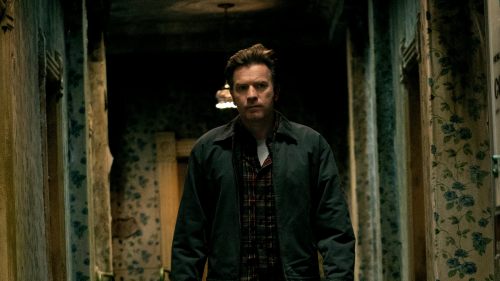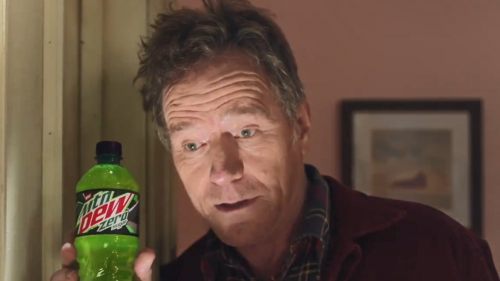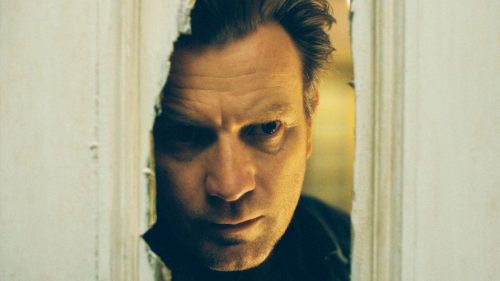Let’s Get Hysterical For The Season Of THE WITCH
The Witch hits theaters this weekend, and after over a year of hype, I assume that most of you already have tickets (if not, buy them here. You're welcome). In honor of Robert Eggers' immaculate exploration of hysteria, fundamentalism, and intimate terror, this week we're celebrating all things witchy. But there's more to The Witch than the titular entity it implies, and to prepare you for Eggers' intensely great feature debut, I've selected a few films that will get you in a hysterical frame of mind.
The Crucible
Based on Arthur Miller's classic play, Nicholas Hytner's undervalued 1996 adaptation starring Winona Ryder and Daniel Day-Lewis is set during the infamous Salem witch trials. A scorned young woman spitefully accuses her ex-lover's wife of witchcraft, leading a chorus of girls to hurl impetuous accusations and exploit the fundamentalist ideals of the townsfolk. In the most famous case of mass hysteria, fears are exacerbated and escalated to a fever pitch of misguided cruelty, as numerous people are accused of witchcraft and sentenced to die based on gross misinterpretations of banal sins.
The ferocious melodrama of Hytner's film is apt given the heightened emotional and fundamentalist temperature of the era. Like Miller's play, it sets an inquiry into the root cause of mass hysteria, a nebulous and insidious thing that develops from a perfect storm of strict puritanical faith, spite, greed, and the grotesquely willful need to explain away the most ordinary human failings as the result of a boogeyman.
Like The Witch, The Crucible concerns itself with the intimate and inexplicable viral insanity that spreads in times of great desperation and confusion, and with the idea that our godly faith can be validated by equivalent faith in something far more sinister.
The Shining
Stanley Kubrick's loose adaptation of Stephen King's novel transforms its contemplative source material into a near-abstract and visceral masterpiece of horror cinema. Kubrick takes the inherently literal qualities of text and supplants them almost entirely with surreal terror and raw rage. Although The Shining shares no surface narrative qualities with The Witch, it too is a film about hysteria, singularly reduced to the devolving mind of a man whose determination to successfully fulfill his masculine patriarchal duties is horrifically augmented by the ominous forces at work in a remote hotel. Increasingly delusional, he comes to believe that the answer to all of his problems lies in killing his family - a mentality not so far removed from the righteous in Salem.
There are nods to The Shining in Eggers' film, from the eerie little twin siblings to the father struggling to provide for his family, to his disillusioned wielding of an axe, but the tangible similarities end there. Just as Kubrick's film was rooted in atmosphere and intangible evil, so too is The Witch as we watch a family slowly descend into madness, spurred on by grief, desperation, weariness, and the irrational commitment to primitive ideals instilled in them by society - ideals that cannot be questioned, for deep down the true horror lies in the suppressed recognition that no reasoning shall be found.
Both films capture the illogic of insanity when irrationality is heightened due to suffocating living conditions - residing in isolation breeds resentment toward cohabitants, regardless of their familial familiarity, and it becomes increasingly easy to displace unfavorable emotions, placing blame for personal failings and insecurities on those who are nearest and dearest.
The Babadook
Which brings us to The Babadook, Jennifer Kent's exceptional ghost story in which the true specter is an amalgamation of the deepest and darkest emotions. Kent's film also serves as an excellent companion to The Shining, but while The Babadook has a few nods to Kubrick's film (the "special" son, an unhinged parent), it shares more in common with the themes deftly explored in Stephen King's prose. Still, like Kubrick and Eggers' films, The Babadook is also preoccupied with the consequences of isolation and repressed emotion. Kent's film meditates on a mother who suppresses and displaces her grief onto her young son, with the titular boogeyman serving as a concentrated manifestation of rage and despair and self-hatred.
Rosemary's Baby
Roman Polanski's classic horror drama is, again, focused on hysteria and paranoia, centered on a housewife who – like a few of Polanski's women - grows increasingly delusional in the confines of her home. Like The Witch, Polanski's film approaches the terror from both sides: the horror of isolated psychosis and the dread that intensifies with the growing certainty of encroaching evil; and the frightening reality that such evil is not imagined, but real, and cannot be explained away by banal circumstance.



